Malala Yousafzai, the Pakistani schoolgirl shot in the head by the Taliban, has criticised Nigerian and world leaders for not doing enough to free hundreds of schoolgirls kidnapped 300 days ago by Boko Haram.
The joint Nobel peace prize-winner said much more would have been done to win the girls’ release had they come from a more privileged background.
“Nigerian leaders and the international community can and must do much more to resolve this crisis and change their weak response to date,” she wrote on her blog. “If these girls were the children of politically or financially powerful parents, much more would be done to free them. But they come from an impoverished area of north-east Nigeria and sadly little has changed since they were kidnapped.”
Malala urged the incoming Nigerian government, which will be elected at the end of next month, to make the kidnapped girls from Chibok a priority in its first 100 days in office.
“Politicians running for office in the upcoming March elections should not only demonstrate their empathy but finally take some responsibility for this tragedy,” she said. “The leaders of Nigeria should commit to work together and make the case of the Chibok girls a priority in their first 100 days in office, as well as the education of every Nigerian child.”
Malala, who was shot by the Taliban for campaigning for girls’ education, visited Nigeria in July, when she pledged to help free the schoolgirls abducted by Boko Haram, the Islamist militants who control large tracts of territory in the north-east.
Boko Haram, inspired by the Taliban, says it is fighting to establish an Islamic state. The group, whose name means “western education is sinful”, has killed thousands and abducted hundreds since launching an uprising in 2009.
The girls’ abduction drew international attention to the war in Nigeria’s north-east and the growing security risk that Boko Haram poses to the country, Africa’s most populous nation and leading energy producer.
A #BringBackOurGirls Twitter campaign supported by Michelle Obama and Angelina Jolie put pressure on authorities to act, and Goodluck Jonathan, the Nigerian president, pledged to save the girls, drawing promises of western help to do so.
But 300 days on, most of the girls remain in captivity although some have managed to escape. The Nigerian government has been heavily criticised for failing to protect civilians in an increasingly violent conflict that left about 10,000 dead last year.
On Saturday, Nigeria postponed elections scheduled for next weekend to allow international forces to regain control of areas in the north-east currently held by Boko Haram.
The country’s electoral commission said the election, which had been scheduled for 14 February, will be held on 28 March. With a week to go, 19 million of the 70 million registered voters have yet to collect their voting cards.
A debate has raged over whether the electoral commission is sufficiently well-prepared, with the incumbent party, which has greater access to Nigeria’s dwindling petrodollars, pushing for a postponement. In 2011, the election was delayed twice, including once less than a week before it was due to take place.
In seeking to keep world attention on the kidnapped girls, Malala said: “These young women risked everything to get an education that most of us take for granted. I will not forget my sisters. We cannot forget them. We must demand their freedom until they are reunited with the families and back in school, getting the education they so desperately desire.”
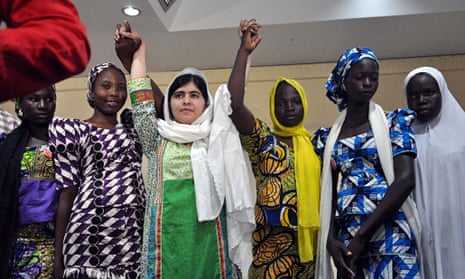
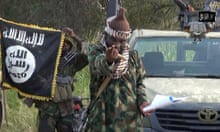
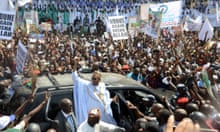
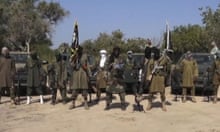
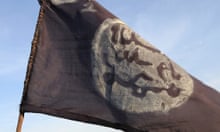
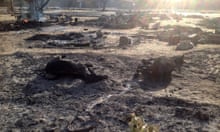
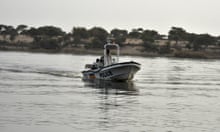
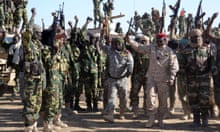
Comments (…)
Sign in or create your Guardian account to join the discussion